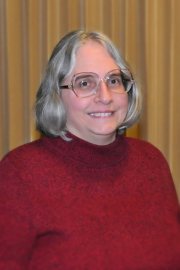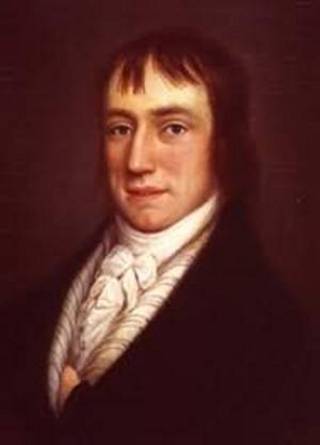Poet’s Corner: William Wordsworth
Comments Off on Poet’s Corner: William WordsworthFebruary 26, 2012 by Admin

by Lisa James
February 2012
This profile was taken from an ongoing series of talks about notable poets of the past that I’ve been giving as host of the Performance Poets Association second-Friday readings at Barnes & Noble East Northport, New York. I’ll be writing about other great poets as well as other poetry topics.
 William Wordsworth was born on April 7, 1770 in England’s pastoral, almost-cliché-beautiful Lake District, the second of five children. His mother died when William was 8; this may explain why he was, in the words of biographer Hunter Davies, “the wild one of the family.” His father, who had introduced young William to poetry, sent him to boarding school, but died before his son graduated. This threw the orphaned family into poverty. Nevertheless, Wordsworth was able to attend Cambridge University.
William Wordsworth was born on April 7, 1770 in England’s pastoral, almost-cliché-beautiful Lake District, the second of five children. His mother died when William was 8; this may explain why he was, in the words of biographer Hunter Davies, “the wild one of the family.” His father, who had introduced young William to poetry, sent him to boarding school, but died before his son graduated. This threw the orphaned family into poverty. Nevertheless, Wordsworth was able to attend Cambridge University.
During his university years, Wordsworth went on a walking tour of Europe. There he came into contact with the French Revolution, which enthralled him. He also fell in love with Annette Vallon, who bore him a son. Wordsworth planned to marry Annette. But as the Revolution turned to the Terror, the relationship between France and Britain soured and Wordsworth returned to England alone.
Davies says an old school friend arranged for a legacy so that Wordsworth could concentrate on poetry. In 1795 he met Samuel Taylor Coleridge, with whom he published Lyrical Ballads in 1798. This style, which seems very Poetry 101 to us today, was radical for its time. As Davies says, “No one knew what to make of it; it was really nothing like what the reading public was used to”—which was epic poetry, not close observations of nature.
“What the word ‘nature’ meant to Wordsworth is, however, a complex issue,” says Ashton Nichols, a professor at Dickinson College in Pennsylvania. “The tension between objective describer of the natural scene and subjective shaper of sensory experience is partly the result of Wordsworth’s view of the mind as ‘creator and receiver both.’” As a result, Wordsworth’s poems “often present an instant when nature speaks to him and he responds by speaking for nature.”
Wordsworth was also affected by the social movements of his times. One of the biggest was the Industrial Revolution, in which gritty urban blight was seen as a fair tradeoff for economic expansion. In “The World Is Too Much with Us; Late and Soon,” Wordsworth expresses disconnection from nature and the universe—sensations not uncommon in today’s Cyber Age.
The world is too much with us; late and soon,
Getting and spending, we lay waste our powers;
Little we see in Nature that is ours;
We have given our hearts away, a sordid boon!
This Sea that bares her bosom to the moon,
The winds that will be howling at all hours,
And are up-gathered now like sleeping flowers,
For this, for everything, we are out of tune;
It moves us not. -Great God! I’d rather be
A Pagan suckled in a creed outworn;
So might I, standing on this pleasant lea,
Have glimpses that would make me less forlorn;
Have sight of Proteus rising from the sea;
Or hear old Triton blow his wreathed horn.
While Wordsworth did visit Annette and their son in France, he wound up marrying a childhood friend, Mary Hutchinson, in 1802. Wordsworth’s sister Dorothy, to whom he had always been close, lived with them. In fact, “I Wandered Lonely as a Cloud” (commonly called “Daffodils”) was inspired by a walk with his sister.
I wandered lonely as a cloud
That floats on high o’er vales and hills,
When all at once I saw a crowd,
A host, of golden daffodils,
Beside the lake, beneath the trees
Fluttering and dancing in the breeze.
Continuous as the stars that shine
And twinkle on the Milky Way,
They stretched in never-ending line
Along the margin of a bay:
Ten thousand saw I at a glance
Tossing their heads in sprightly dance.
The waves beside them danced, but they
Out-did the sparkling waves in glee: –
A poet could not but be gay
In such a jocund company:
I gazed -and gazed -but little thought
What wealth the show to me had brought.
For oft, when on my couch I lie
In vacant or in pensive mood,
They flash upon that inward eye
Which is the bliss of solitude;
And then my heart with pleasure fills
And dances with the daffodils.
The Wordsworths had five children, but tragedy struck in 1812. “In June of that year, Catherine, his fourth child, died of convulsions at  age 3; in December, the third child, Thomas, died of pneumonia. Mary herself came close to dying from grief, and Dorothy was little better,” says Davies.
age 3; in December, the third child, Thomas, died of pneumonia. Mary herself came close to dying from grief, and Dorothy was little better,” says Davies.
In 1813, Wordsworth was appointed Distributor of Stamps for Westmorland, which provided a steady income. In 1843, he was made British Poet Laureate. At first he refused, citing his age, but was persuaded to accept the appointment by Prime Minister Richard Peel.
Four years later, the death of his daughter Dora stilled Wordsworth’s pen. He died of pleurisy on April 23, 1850. His widow published The Prelude, regarded as Wordsworth’s masterpiece, later that year.
Category Word | Tags:
Comments Off on Poet’s Corner: William Wordsworth
Sorry, comments are closed.

